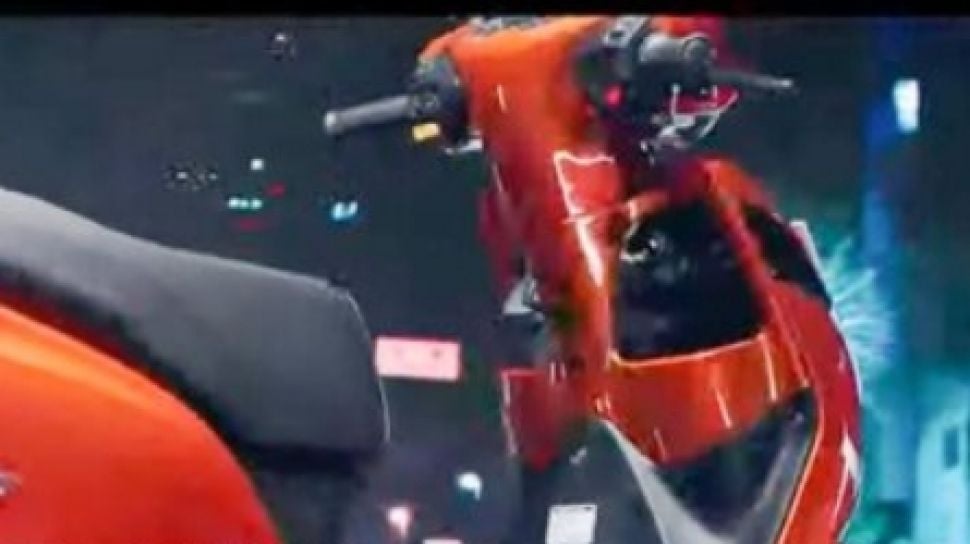Before the release of the album, you and the band Kryštof sent several singles to the world. It’s been a way to present yourself in recent years without having to record a regular record. Did you personally gain a closer relationship to the so-called single journey?
He didn’t win. It is modern, but in our case the release of singles was given by the atmosphere of the time. The original intention was that the first single from the album would be the song Hvězdáři, which was to be released in the autumn of 2020, and the second duet with Karel Gott Vánoční. The others were supposed to be together except for the album. But Lockdown changed everything. When he arrived, we also released the song Right Now (Come Be the Headlight), which we wanted to encourage all the partners, friends and people who had collapsed since then. The run of other singles was unplanned in this case.
–
But in the end we didn’t want to delay the release of the album. We were afraid that the singles that were released would be very dusty, and if we released the album even later, they would not be up to date. However, I’m a little sorry that the songs didn’t come out together at first, because together they form a strong collection.
–
In what mood did they come into the world?
In a little different than the previous boards. I recapitulated a bit and I think that thanks to that I approached folding with a light hand, so to speak. In a way, the coronavirus gave us more freedom. As we were under the blanket and living with fear, it seemed energetic and inspiring to me. I wanted to live life to the fullest. Create to the fullest. I think it was reflected on the album.
–
The songs are also inspired by the sound of the eighties…
You’re right, there are three or four on the album that are explicitly directed at it. Maybe it’s because when I wrote Vohul bass, I remembered a little. I was returning to childhood, and a clip of footage from when I was six to twelve years old was running before my eyes. It evoked the sound of the music of the eighties and I stayed with that feeling when writing some other songs.
–
I told Martin Šebestík, one of the producers of the album, while recording the song Vohul bass, that I want it to have the sound of eighty. And I also approached other producers who worked with us on the record.
–
I think I’ve been talking about the music of the eighties on some previous records. But this time it turned a little more. When my wife listened to the whole record continuously, she said to me: Look, is it clear to you that this is the biggest change you have ever made?
–
She added that she wondered what people would say. I think if they like us, they will like it. It’s still us. See you…
–
What bands did you grow up with?
Especially the neo-romantic ones, which included U2, The Cure, Depeche Mode and Ocean. At the age of fifteen to eighteen, they influenced me the most. I went to fan gatherings, first as a copy of Peter Muk from the Ocean and later Robert Smith from The Cure. From our scene, however, I would also like to remember the group Helmut’s Syringe and their first album Helmut and Hilda. It was great, unbeatable.
–
I have to admit that Astronomers, a duet with Sima Martaus, reminds me a little bit of your other duet Cesta, which you sang with Tomáš Klus. How much do you care so that you don’t repeat yourself as an author?
I don’t think about it much. When I bring a new song, I ask the guys from the band if it doesn’t remind them of something or something. Whether it was our song or someone else. That’s all babysitting.
–
I once, in quotation marks, wrote a great song by Lady Gaga. I had an idea, I enthusiastically sent it to the boys with the addition that it would be a hit, and they also praised him. But our bass player Nikolai thought about it and said that he seemed to know it from somewhere. I objected, but he sent me a link to a song from Lady Gaga in a moment. At least eighty percent of it was her.
–
So, of course, it can happen. But there is no ambition to steal anything.
–
And when it comes to stealing myself, Halywodu is our eighth record, and I’d be a genius if I didn’t have something on it that didn’t remind anyone of something I’ve composed in the past. However, I don’t feel that the Astronomers are reminiscent of the Way. But maybe it is.
–
Kryštof recorded their eighth album.
Photo: Petr Hrubeš
Your new album is quite cheerful. I often remember how Kryštof said after the third record that you only compose sad and slow songs. When did that change?
Probably with the album Inzerát in 2010. It was our restart. We were in a difficult situation before. We went somewhere, we played in big halls, at big festivals, we worked with the best local producers and we didn’t know where to go next.
–
At that time, Boris Carloff helped us, who literally kicked us into trying to work with foreign producers. We did it and it was a fresh and wonderful experience. I think it printed on the Advertisement board. After its release, a huge positive wave came and Kryštof swung to paraphrase the song, all the way to the tops of the mountains.
–
I also started to be happy on a personal level at that time. There were turning points in me and I began to look at things from a different angle. And I wanted to spread that joy around me.
–
Did the change in your life bring a different atmosphere in the band?
Maybe. But you would rather ask the boys. We all live in a band, we collaborated on all the songs, so it didn’t occur to us at all when preparing the Advertisement that something different was happening. We’re all constantly thinking about where to move our playing to make something new, fresh on the records. But I think the most important thing is that we still enjoy it.
–
How did the Slovak singer Sima Martausová and Kryštof merge in the song Hvězdáři?
Sima addressed us. She wrote that she follows us, loves our work and that she would like me to write a song for the two of us. I replied that if something occurred to me, I would call. And I was attacked by the Astronomers. I wrote a Czech and Slovak lyrics, sent her a song and she liked it. The recording then came out, so to speak, at the first good one.
–
Why is there a song by Milan Baroš on the album, which you originally intended only as a gift to say goodbye to a popular footballer with an active career?
Milan and his wife Tereza are both friends and fans of the band Kryštof. When Milan had a farewell, Terezka called me and asked me if I could come up with something for him. I decided to recycle our song Naviděnou, which was released on our best of album 25 in 2017. Its scope allowed me to tell a lot of lyrics in the new version, which I needed because I map Milan’s career in it.
–
We shot a clip with his important goals and moments, and dedicated the whole thing to Milan. However, the song became an unexpected viral hit. Wherever we go, they want to play it. When my wife and I were preparing a Christmas stream, we let the fans vote about the songs they wanted to hear. There were thousands of votes. In the first place ended the Hearts will not go out, in the second Christmas and in the third was Milan Baroš.
–
Before the release of the new album, I suddenly felt sorry that we didn’t have the song on the record. I thought that if we were to compile songs from the last two or three years, we would also slide it between them.
–
At the end of the album is Christmas, your duet with Karel Gott. What memories do you have of him now, with the passage of time?
The story of this song is simple, and it was the reason why the song Heart Don’t Go Out was later created. I first offered Karel Gott Christmas. He listened to her and he liked the joke that he would only sing a phrase from the song Where Are You A Bird’s Nest. But when he started working together, I felt sorry to sing only her. We worked on the song a bit and it turned out the way it did.
–
She was the trigger for our meeting. Two or three days after I sent it to him, he called me back. He told me his whole current story, told me how medically he was, and asked me if I would try to write a duet for him and his daughter Charlotte yet. So the Christmas song allowed me to spend another half a year with him. We rehearsed, recorded, I performed at his last concert in Malostranská beseda in Prague and it also allowed us to clean the table, which we had a bit of a mess, and neither of us knew why.
–
He really wanted to come to Kryštof camps. He really liked their idea, and he even told me I was like him because I was with the audience until the last one left. And he also admitted to me that he was sorry that we wouldn’t have time to record the whole album together.
—


